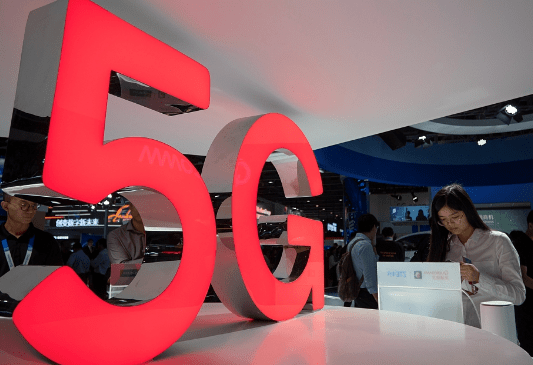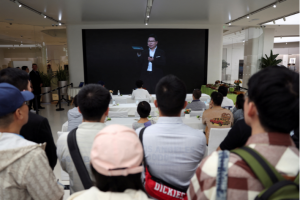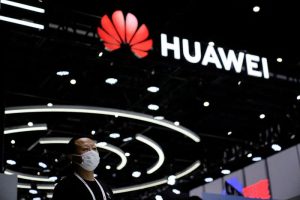HTC, hobbled for years by financial losses, posted a rogue revenue gain in November as its 5G smartphones took off in its home market of Taiwan.
The 23-year-old smartphone developer, that saw its global market share peak nearly a decade ago with some of the world’s first Android handsets, has joined a group of fellow companies from Taiwan’s giant tech field in supplying world 5G demand.
The smartphone maker reported a 0.96% year-on-year revenue growth last month for a total of NT$555 million ($19.7 million). That bump marked HTC’s first monthly gain in 2020 as its U20 5G handsets gained traction in Taiwan.
Read more: US to blacklist ‘dozens more Chinese firms’ including SMIC
Other Taiwan tech firms that already supply the world’s major smartphone developers should expect same-sized or bigger orders for parts such as chips, camera lenses and final assembly, industry analysts believe.
More than a dozen firms in Taiwan, a long-standing world tech hardware hub, already contract to Apple, and the iPhone 12 series now on the market comes with 5G support.
“The 5G space is growing as the natural successor for 4G,” said Ahmed M Ahmed, market analyst with tech market research firm IDC. “More 5G devices coming from bigger brands like Apple will speed up this shift.”
Shipments of 5G phones will reach 228 million units this year and 549 million units in 2021, with penetration at nearly 40% next year, said Rachael Liao, an industry analyst with the Market Intelligence and Consulting Institute in Taipei. Average selling prices of 5G smartphones nearly doubled those of 4G models in the third quarter, IDC estimates.
FASTER DOWNLOADS
Wireless 5G transactions such as downloads run up to 100 times faster than 4G, and the new technology will shorten lags between sending and receiving information.
Taiwan’s weight in 5G smartphones has increased in the last year and will keep growing, said Brady Wang, Taipei-based analyst with the tech analysis firm Counterpoint Research.
The $600-plus billion, tech-dependent economy is also gaining this year from hardware orders placed in China amid the Sino-US trade spat, and from global demand for PCs needed for home-working during the pandemic.
Taiwan Semiconductor Manufacturing Co (TSMC), the world’s largest contract chipmaker, and Taiwanese chip designer MediaTek are particularly well positioned to gain from 5G orders, said Sean Su, an independent, tech-specialised consultant in Taipei.
GROWTH DRIVERS
TSMC will “always do well” because they make systems on a chip and “just about everyone goes to them,” Su said.
Technology for 5G phones was among TSMC’s main growth drivers in the third quarter, a company spokesperson said, and that demand is powering sequential growth in the current quarter. This “megatrend” helped motivate TSMC to raise its 2020 capital spending to US$17 billion, the spokesperson said.
MediaTek’s year-old Dimensity mobile phone systems-on-a-chip work for 5G phones and position the company to compete with market leader Qualcomm, Su added. “People shouldn’t dismiss them,” he said.
The company known for making chips for lower-end phones does not break down revenue by product line but confirmed that it shipped more than 45 million Dimensity system-on-a-chip units this year.
CHIP PRODUCTION
MediaTek’s system-on-a-chip shipments made up 13.7% of the global 5G smartphone market in October, Counterpoint Research believes. In the same month, Counterpoint says, TSMC made up 73.9% of the foundry service for 5G phone chip production.
Foxconn Technology, the world’s biggest contract assembler of consumer electronics, is tipped as the most likely assembler of 5G phones as it already makes iPhones at its China factories.
HTC ultimately will struggle for 5G phone market share against Samsung and major Chinese handset brands, consistent with the 4G landscape, analysts believe. HTC’s global 5G smartphone market share was less than 1% in the third quarter, said Neil Mawston, executive director of global wireless practice with the British market research firm Strategy Analytics.
While 5G mobile demand may lift orders, “it is still quite challenging for HTC to return to the leading position in the mobile phone market,” Liao, of the Market Intelligence and Consulting Institute, said.























